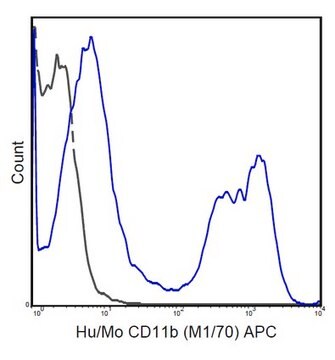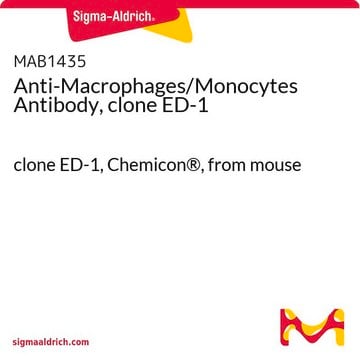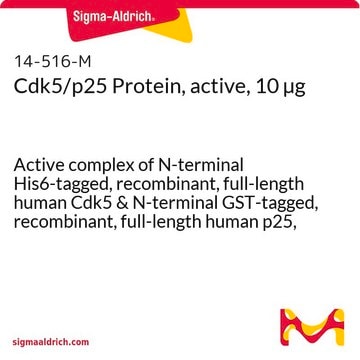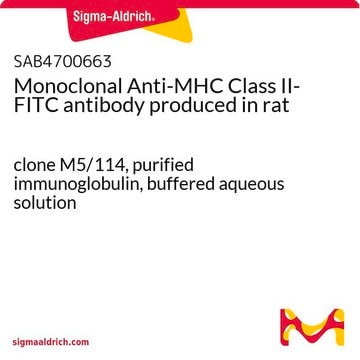MAB1852
Anti-Macrophages/Monocytes Antibody, clone MOMA-2
clone MOMA-2, Chemicon®, from rat
About This Item
Productos recomendados
biological source
rat
Quality Level
antibody form
purified immunoglobulin
antibody product type
primary antibodies
clone
MOMA-2, monoclonal
species reactivity
mouse
manufacturer/tradename
Chemicon®
technique(s)
flow cytometry: suitable
immunohistochemistry: suitable
isotype
IgG2b
shipped in
wet ice
target post-translational modification
unmodified
Specificity
Application
Immunohistology: FRESH frozen sections at 1:25. The epitope recognized by MAB1852 is formaline sensitive. Fixation in fresh, acetone at 4°C or colder is strongly recommended. Specimens must be completely air dried after acetone fixation. Formalin or PFA fixation is not recommended.
Because of the lower titer, enhanced detection systems such as our poly-HRP secondaries or biotin labelled secondary antibodies followed by SA-FITC are recommended.
Optimal working dilutions must be determined by end user.
Inflammation & Immunology
Inflammation & Autoimmune Mechanisms
Physical form
Storage and Stability
Analysis Note
Macrophages, monocytes, lymphoid organs
Other Notes
Legal Information
Disclaimer
¿No encuentra el producto adecuado?
Pruebe nuestro Herramienta de selección de productos.
Storage Class
12 - Non Combustible Liquids
wgk_germany
WGK 2
flash_point_f
Not applicable
flash_point_c
Not applicable
Certificados de análisis (COA)
Busque Certificados de análisis (COA) introduciendo el número de lote del producto. Los números de lote se encuentran en la etiqueta del producto después de las palabras «Lot» o «Batch»
¿Ya tiene este producto?
Encuentre la documentación para los productos que ha comprado recientemente en la Biblioteca de documentos.
Nuestro equipo de científicos tiene experiencia en todas las áreas de investigación: Ciencias de la vida, Ciencia de los materiales, Síntesis química, Cromatografía, Analítica y muchas otras.
Póngase en contacto con el Servicio técnico








